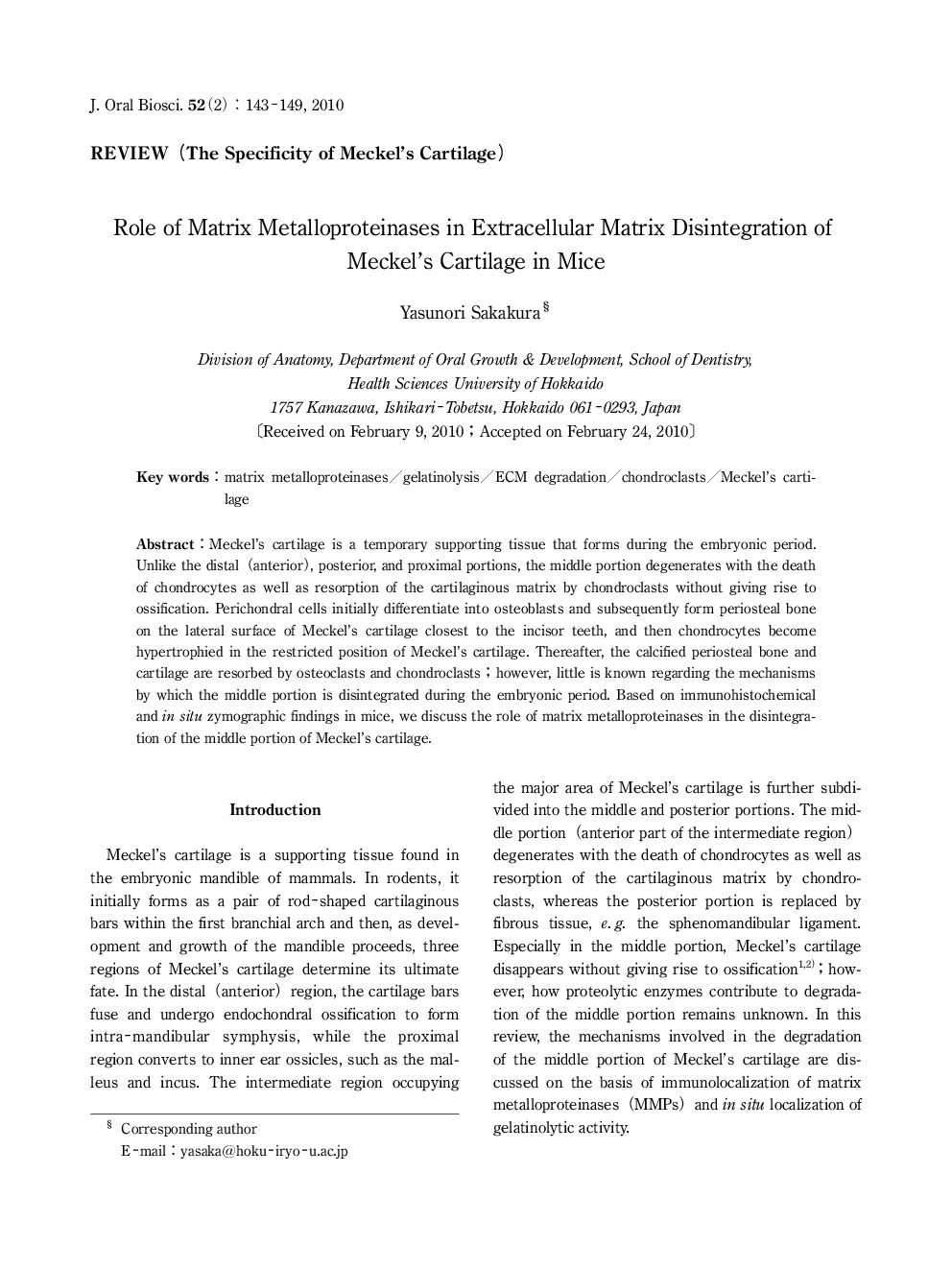| Article ID | Journal | Published Year | Pages | File Type |
|---|---|---|---|---|
| 2776978 | Journal of Oral Biosciences | 2010 | 7 Pages |
Meckel's cartilage is a temporary supporting tissue that forms during the embryonic period. Unlike the distal (anterior), posterior, and proximal portions, the middle portion degenerates with the death of chondrocytes as well as resorption of the cartilaginous matrix by chondroclasts without giving rise to ossification. Perichondral cells initially differentiate into osteoblasts and subsequently form periosteal bone on the lateral surface of Meckel's cartilage closest to the incisor teeth, and then chondrocytes become hypertrophied in the restricted position of Meckel's cartilage. Thereafter, the calcified periosteal bone and cartilage are resorbed by osteoclasts and chondroclasts; however, little is known regarding the mechanisms by which the middle portion is disintegrated during the embryonic period. Based on immunohistochemical and in situ zymographic findings in mice, we discuss the role of matrix metalloproteinases in the disintegration of the middle portion of Meckel's cartilage.
